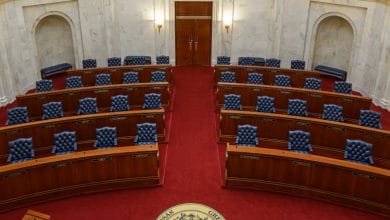Will Lawsuit Cause $6.2 Billion Budget Redo?
By David Ferguson
If the state loses the lawsuit over the effective date of the LEARNS Act, then Arkansas’ $6.2 billion general revenue budget is also in jeopardy. A special session of the legislature could be needed to deal with the budget crisis and because time is short before the next fiscal year, which begins on July 1, many state programs could begin the new fiscal year without authority to spend any general revenue.
What does the state budget have to do with a lawsuit over the effective date of the LEARNS Act? The lawsuit concerning the LEARNS Act claims the legislature’s procedure to pass emergency clauses violates the Arkansas Constitution and therefore the LEARNS Act has not become effective yet. The LEARNS Act, all budget bills, and many more laws rely on an emergency clause to allow the law to become effective immediately or on some date prior to the effective date of the laws that do not have an emergency clause.
Legislation without an emergency clause becomes effective on the 91st day after the legislature ends the session. Legislation, with an emergency clause passed by a 2/3rds vote of each chamber, becomes effective immediately or on a date specified in the emergency clause.
For as long as anyone can remember, when a bill with an emergency clause has been considered on the floor of the Arkansas Senate or House of Representatives, the presiding officer has announced that the vote will be on both the passage of the bill and the passage of the emergency clause. The vote is recorded on the journal as two separate votes. The plaintiffs contend the Arkansas Constitution doesn’t allow the votes to be bundled into one vote.
The circuit judge granted the plaintiffs motion to impose a temporary injunction against the enforcement of the LEARNS Act and the Arkansas Supreme Court allowed the injunction to remain in force. If that is any indication of how the courts will rule after a hearing, then the effective date of many laws could be in jeopardy.
State budget bills must have an emergency clause for them to be effective on the first day of the state’s new fiscal year, which is July 1, so there will be no gap in funding of agencies and programs. If the procedure used by the legislature to pass emergency clauses is found to be in violation of the Arkansas Constitution, then there would be a cloud over the budget bills too. If the budget bills are not effective until July 31 when other laws become effective this year, then there would be no authority for the state to spend general revenues for almost a month.
The state faced a similar crisis in 1989 when the legislature had to redo all appropriation acts because the legislature had failed to pass what is known as the general appropriation act first before other appropriation acts as required by the Arkansas Constitution. Governor Bill Clinton called the legislature into special session beginning on June 20, 1989, which allowed the legislature time to repass hundreds of appropriation bills before the new fiscal year started on July 1.
Under the Constitution, it takes a minimum of three days to pass a law. That means if there must be a special session to deal with the emergency clause issue on budget bills the special session would need to start no later than June 28th to avoid a gap in spending authority. But the LEARNS lawsuit may not be resolved by then. The circuit judge set a June 20th date to begin the hearings on the lawsuit. If the judge rules against the state, then the state will appeal to the Supreme Court. That doesn’t leave much time if the decision goes against the state, and it could mean a gap in state spending of general revenue for several weeks.
In addition to the potential budget crisis, if the plaintiffs win, expect many more lawsuits against the state. For example, if a person was convicted of a crime for an action occurring between the date the law was passed with an invalid emergency clause and the date laws without emergency clauses become effective, the person would want to challenge the conviction. There are many laws with emergency clauses that impose a duty or give a right and they all would be subject to scrutiny to see how a client would have been affected if there was a later effective date for a law. Such challenges would not be limited to just laws passed this year. Laws passed many years ago might also be challenged.
Lawyers will be able to prove that the vote on a bill and on the emergency, clause were bundled into one vote, since for many years the House has recorded its proceedings for the internet. Decades before that, the House allowed its proceedings to be recorded and broadcast over a cable channel. Lawyers would be poring over those videos to show how emergency clauses were approved.
The lawsuit over the LEARNS Act is about when the LEARNS Act becomes effective, but it could halt the funding of many state programs, require a special session to minimize the budget problem, and cause chaos for many other laws.
Hopefully the courts will agree the legislative procedure on emergency clauses is permissible and the whole mess can be avoided.
David Ferguson is a former Director of Arkansas’ Bureau of Legislative Research, having a thirty-two-year career as an attorney for the Arkansas legislature. After retirement from state service, his primary focus has been beef cattle farming. He is also a former officer of Conduit for Action.






